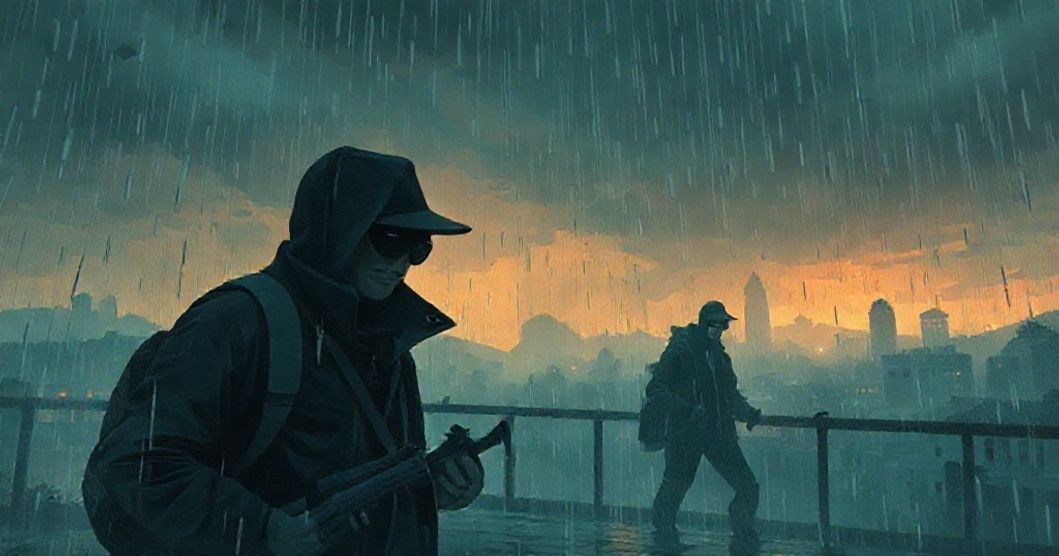Part 1: Dream Presentation
Dreams often serve as emotional compasses, guiding us through the unspoken tensions of our inner lives. This particular dream journey unfolds like a psychological mosaic, blending moments of urgency, loss of control, and unexpected vulnerability. Here is the dreamer’s narrative, rendered with poetic clarity while preserving every core detail:
I woke with fragments of two vivid dreams lingering, their emotional weight still palpable. The first dream unfolded in a familiar sedan, my hands fumbling with the seatbelt that refused to release. I’d buckled in automatically, as if muscle memory, but now panic surged through me—thieves materialized across the road, their movements urgent and predatory as they swarmed other vehicles. I lunged for the door handle, but the seatbelt held me fast, a physical manifestation of my trapped sense of self. My key fob glowed uselessly in my pocket as I pressed the unlock button repeatedly, the sound of my desperation echoing against the silence of the dream world. Passersby moved around me, oblivious or indifferent, leaving me stranded between safety and imminent danger. The second dream shifted abruptly to a house that felt simultaneously foreign and familiar—my father’s girlfriend’s home, yet with unfamiliar walls and a festive air. Christmas lights twinkled, though the rain came without warning, soaking the yard as we scrambled to gather gifts. A friend’s mother called out, offering to safeguard our presents while we sought shelter, but my mind raced to find my car and fiancé. Together with an unknown man, we borrowed my father-in-law’s truck, its engine rumbling as we drove to a nearby dealership. There, I found my fiancé slumped against a wall, drunk—a sight that jarred me, for he never drinks in waking life. A dealership clerk offered to drive him home, and I agreed, my relief mixed with unease. Returning to the truck, I discovered a stranger sifting through my laptop, poring over old, embarrassing texts from my teenage years with an ex. My grandmother, appearing unexpectedly, joined the scene, her gaze fixed on the screen. The dream dissolved into a trailer park, a place I didn’t recognize, yet its gritty familiarity felt like a metaphor for life’s unexpected turns. These dreams, I realized, mirrored recent events: my daughter’s first birthday party where rain threatened our celebration, and a tense argument with my mother-in-law the night before. The symbols pulsed with meaning I couldn’t yet untangle.
Part 2: Clinical Analysis
Want a More Personalized Interpretation?
Get your own AI-powered dream analysis tailored specifically to your dream
🔮Try Dream Analysis FreeSymbolic Landscape: The Language of Unconscious Fears
To interpret this dream, we must first decode its symbolic architecture—the car, thieves, rain, and personal texts all serve as emotional signifiers rather than literal events. The car, a recurring motif in dreams, represents the dreamer’s sense of personal agency and security. The trapped seatbelt embodies a core psychological tension: the dreamer feels constrained despite outward appearances of control. Thieves, as shadow archetypes in Jungian psychology, symbolize repressed anxieties or external threats we perceive in waking life. Their presence in the first dream suggests the dreamer is grappling with feelings of being under attack—whether from family conflict, work pressures, or the stress of new parenthood.
The second dream’s house, though familiar, is distinctly not the girlfriend’s home. This uncanny displacement mirrors the dreamer’s internal uncertainty about belonging or role boundaries—perhaps in family relationships or new life transitions. Rainstorm symbolism is multifaceted: it often represents emotional overwhelm, as the sudden downpour disrupts the festive party, mirroring how unexpected stressors can derail plans. The act of gathering gifts during a storm reflects the dreamer’s desire to protect or preserve something precious—likely their daughter, given the recent first birthday context.
The laptop and teenage texts introduce a layer of vulnerability. In dreams, technology often symbolizes how we present ourselves online or to others, while old texts represent unprocessed emotional history. The stranger accessing these private messages suggests fears of judgment or exposure of one’s past self—common anxieties in relationships, especially with new family members like a mother-in-law.
Psychological Currents: Theoretical Frames of Dreaming
From a Freudian perspective, dreams function as the
